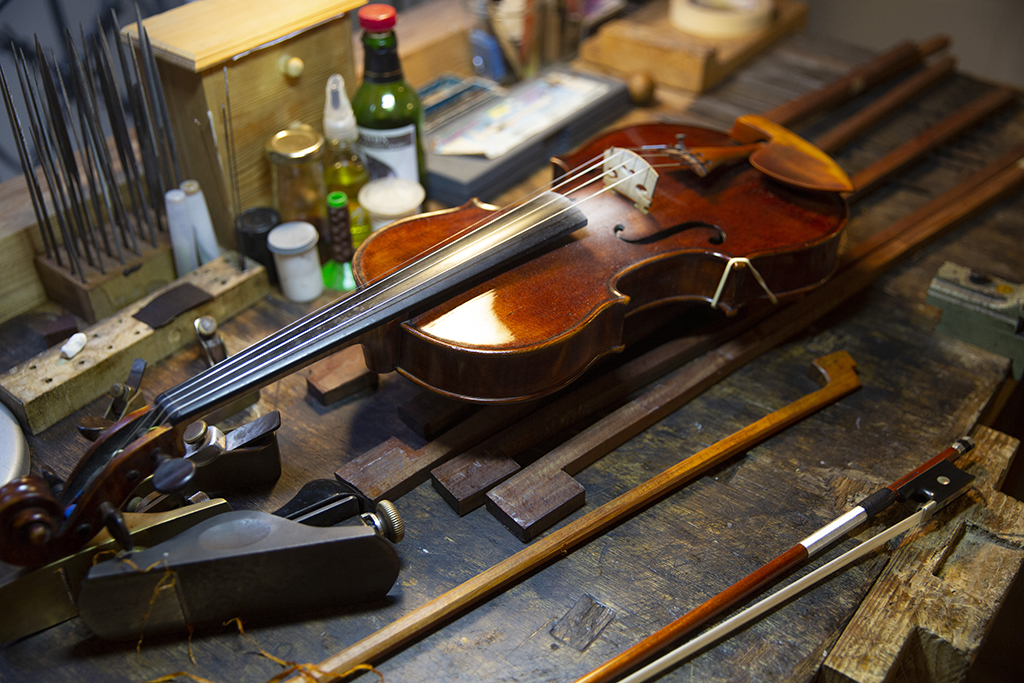Global classical stars including US cellist Yo-Yo Ma and British conductor Simon Rattle joined a campaign on Tuesday to stop Brazil blocking the trade in a rare wood used for making bows. The world's greatest bows for violins and other stringed instruments are overwhelmingly made from the Paubrasilia Echinata, or pernambuco, which grows exclusively in northeastern Brazil and gave its name to the country.
But Brazil's outgoing president, Jair Bolsonaro, has submitted a petition to criminalise trade in the wood, due to be heard by the Convention on International Trade in Endangered Species of Wild Fauna and Flora (CITES) at its next meeting on November 25.
 Photo shows Woods pieces at the studio of French bow maker Edwin Clement.
Photo shows Woods pieces at the studio of French bow maker Edwin Clement.Bow makers say the government's claim that they are threatening the tree's survival is absurd-not least since Bolsonaro has done so much to encourage industrial deforestation in the Amazon. The world's bow makers use only around 200 trees a year, according to British violin dealer Martin Swan, and have funded the International Pernambuco Conservation Initiative which has planted some 250,000 new seedlings since 2000.
Criminalizing the trade will only encourage smuggling, adds the National Pau-Brasil Foundation, a Brazilian conservation group. "Let us not make the musical world a scapegoat for deforestation," said the petition signed by dozens of global musicians and orchestras. Bow makers say banning the trade would decimate their industry, while also requiring musicians and orchestras to carry special passports for each bow made from pernambuco when they travel.
 Photo shows French bow maker Edwin Clement working in his studio in Paris.
Photo shows French bow maker Edwin Clement working in his studio in Paris."We are not denying reality-there is a problem of deforestation in Brazil," said French stringed instrument maker Fanny Reyre-Menard. "But it's not the bow makers who are responsible for it. They are part of the conservation effort."
Artisans claim nothing beats the precise resistance, density and elasticity of pernambuco for projecting the sound of stringed instruments. "This wood is the origin of the modern bow. If we replace it, we will no longer play the violin as it has been played for 250 years," Parisian bow maker Edwin Clement told AFP. - AFP











